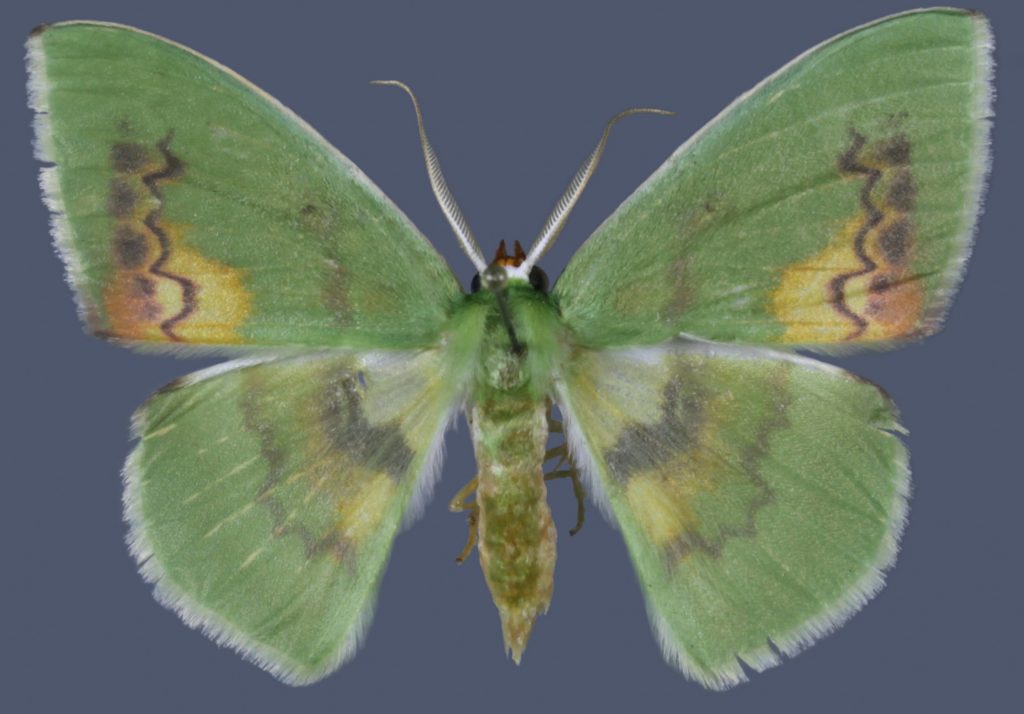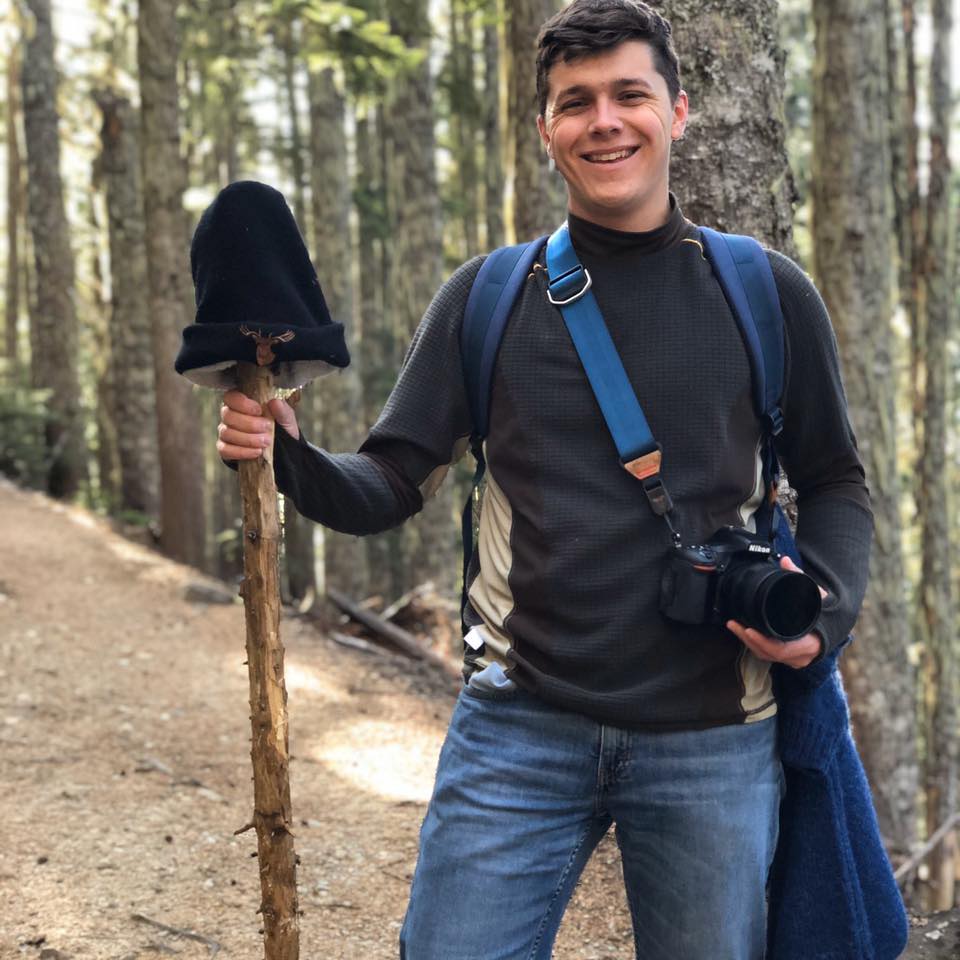With the arrival of spring, we feature two of our latest hires who play key roles in maintaining the steady stream of innovative research, education, and outreach at the McGuire Center.
David Plotkin is the new project manager of the Kawahara Lab at the McGuire Center. After completing a B.S. in biology at Carnegie Mellon University and an M.S. in entomology at Mississippi State University, he moved to Gainesville in 2013 and started volunteering at the museum. Shortly thereafter, he enrolled at the University of Florida and conducted his Ph.D. research on the evolution of emerald moths (Geometridae: Geometrinae) with Akito Kawahara. After graduating, he stayed in the Kawahara Lab as a postdoc before transitioning to his current position in 2022. David is broadly interested in Lepidoptera taxonomy and systematics and is excited for the opportunity to contribute to the many ongoing projects in the Kawahara Lab, and to mentor new students pursuing their own research into Lepidoptera evolution and biodiversity. He also will continue to assist Charlie Covell and Bob Belmont with curation of the McGuire Center’s extensive Geometridae collection. In his free time, David enjoys crossword puzzles, racquetball, and pub trivia.
Brandon Parker recently joined the Kawahara Lab as molecular lab manager. Originally from Ocala, Florida, Brandon grew up on a horse farm where his family raised and trained thoroughbreds for racing. He worked in several veterinary clinics and the Endangered Animal Rescue Sanctuary in Citra before moving to Gainesville to attend UF. Having already developed a passion for animals and the natural world at an early age, Brandon completed his B.S. in Animal Sciences in 2016 and his M.S. in Wildlife Ecology in 2021. As a research technician in veterinary entomology, he further developed his laboratory skills working on various projects involving ticks, mosquitos, stable flies, and other veterinary pests. As a graduate student, he studied population genetics of invasive wild hogs in Florida, anthropogenic factors associated with their population dynamics, as well as pathogen dispersal by hogs and the exposure potential to humans. Along with developing his lab management skills, Brandon looks forward to applying his broad experience in molecular genetics to a variety of ongoing projects in the Kawahara Lab as well as undertaking new projects involving morphology and artificial intelligence. In his free time, Brandon enjoys hiking and kayaking, and supports young scientists as a regional science fair judge and through the Skype a Scientist program.


